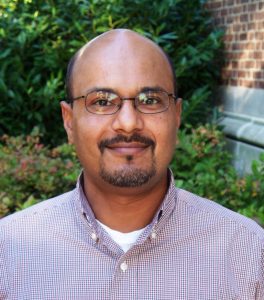
 Rajat Mittal, professor of mechanical engineering, is one of three Johns Hopkins researchers who have received grants from the Human Frontier Science Program, an international organization dedicated to supporting the study of the complex mechanisms of living organisms.
Rajat Mittal, professor of mechanical engineering, is one of three Johns Hopkins researchers who have received grants from the Human Frontier Science Program, an international organization dedicated to supporting the study of the complex mechanisms of living organisms.
Founded by a collective of scientists from around the world, the selective Human Frontier Science Program awards grants to international teams in an effort to “combine their expertise in innovative approaches to questions that could not be answered by individual laboratories.” Since 1990, awards have been granted to more than 6,000 scientists from more than 70 countries, and 25 of these awardees have gone on to win the Nobel Prize.
Mittal received $750,000 for his work studying the communicative properties of mosquito movements.
Like birds, primates, and other insects (and even humans from time to time), mosquitoes attract mates through a courtship “dance.”
For more than a century, scientists have studied the movements of the mating ritual of the mosquito and the distinctive sounds generated by its wings during its midair dance. But the scientific tools needed to gather detailed data about how these sounds are altered during courtship currently don’t exist.
Mittal will lead a research effort to develop a first-of-its-kind flow-acoustic computational model that will simulate the generation, direction, and intensity of these wing-tones based on the experimental data provided by collaborators at the University of Greenwich in London who will study free-flying mosquitoes in a laboratory. The goal is to create and deploy a wide range of experimental and computational modeling tools to learn more about the insect’s delicate dance and examine how mosquito swarms respond to external sounds.
Mittal hopes that the knowledge gathered from these studies will help researchers devise environmentally friendly strategies to disturb the flight and mating of mosquitoes, and to also design effective insecticidal and surveillance traps.
Adapted from The Hub. Read the full list of grant recipients >>